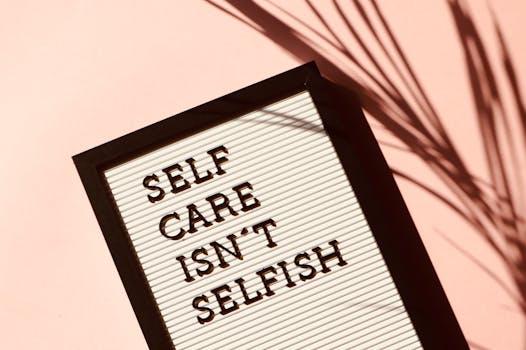Embracing a Balanced Lifestyle: Your Guide to Wellness and Happiness
Takeaways: In this article, we will explore the importance of a balanced lifestyle, covering key aspects such as physical health, mental well-being, and mindfulness practices. You’ll learn practical tips for incorporating healthy habits into your daily routine, fostering self-care, and creating a supportive environment for personal growth.
Understanding the Concept of a Balanced Lifestyle

The Importance of Balance
Balance is the cornerstone of a fulfilling life. When one area of our life is out of sync, it can lead to stress, anxiety, and dissatisfaction. By understanding the importance of balance, we can take proactive steps to ensure we nurture all areas of our well-being.
Key Components of a Balanced Lifestyle
A balanced lifestyle includes several key components:
- Physical Health: Regular exercise, a nutritious diet, and adequate sleep.
- Mental Health: Managing stress, practicing mindfulness, and seeking therapy when needed.
- Social Connections: Building and maintaining supportive relationships.
- Personal Development: Setting goals and pursuing passions.
How to Assess Your Current Lifestyle
To embrace a balanced lifestyle, it’s crucial to assess your current habits. Consider the following:
- Evaluate your daily routines.
- Identify areas that require improvement.
- Set realistic goals to achieve a better balance.
Physical Health: The Foundation of Balance

Nutrition: Fueling Your Body
Eating a balanced diet is essential for maintaining energy and health. Focus on whole foods, including:
- Fruits and vegetables
- Whole grains
- Lean proteins
- Healthy fats
Stay hydrated and limit processed foods, sugar, and excessive salt.
Exercise: Moving Your Body
Regular physical activity is crucial for mental and physical well-being. Aim for at least 150 minutes of moderate aerobic exercise per week, along with strength training exercises on two or more days a week. Consider activities like:
- Walking or jogging
- Yoga or Pilates
- Swimming
- Cycling
Sleep: Rest and Recovery
Sleep is vital for recovery and overall health. Aim for 7-9 hours of quality sleep each night. Establish a nighttime routine that promotes restful sleep, such as:
- Limiting screen time before bed
- Creating a comfortable sleep environment
- Practicing relaxation techniques
Mental Health: Nurturing Your Mind

Stress Management: Finding Your Calm
Effective stress management is vital for mental well-being. Implement strategies such as:
- Deep breathing exercises
- Meditation or mindfulness practices
- Engaging in hobbies
The Role of Mindfulness
Mindfulness involves being present and fully engaged in the moment. Practicing mindfulness can reduce stress and improve mental clarity. Techniques include:
- Mindful breathing
- Body scans
- Mindful walking
Seeking Help When Needed
Don’t hesitate to seek professional help if you’re struggling with mental health issues. Therapy and counseling can provide valuable support and coping strategies.
Self-Care: Prioritizing Yourself

Creating a Self-Care Routine
Establish a self-care routine that works for you. This could include activities like:
- Taking relaxing baths
- Reading or journaling
- Spending time in nature
The Power of Boundaries
Learning to say no and setting boundaries is crucial for self-care. Protect your time and energy to avoid burnout.
Practicing Gratitude
Incorporating gratitude into your daily routine can enhance your overall happiness. Consider keeping a gratitude journal or sharing things you’re grateful for with loved ones.
Social Connections: Building a Supportive Network

The Importance of Relationships
Healthy relationships contribute to our overall happiness. Invest time in nurturing your relationships with family and friends.
Finding Community
Engaging in community activities can help foster connections. Look for local groups, clubs, or classes that align with your interests.
Online Connections
In today’s digital age, online connections can also be meaningful. Join online forums or social media groups that share your interests and values.
Personal Development: Growing and Evolving

Setting Realistic Goals
Establish short-term and long-term goals that resonate with you. Use the SMART criteria (Specific, Measurable, Achievable, Relevant, Time-bound) to guide your goal-setting process.
Pursuing Your Passions
Engaging in activities you love can greatly increase your happiness. Make time for hobbies and interests that spark joy.
Continuous Learning
Embrace lifelong learning by seeking out new skills or knowledge. Consider taking courses, reading books, or attending workshops.
Creating a Supportive Environment

Decluttering Your Space
A cluttered environment can contribute to stress. Take time to declutter and organize your living space to create a calming atmosphere.
Incorporating Nature
Incorporating elements of nature into your environment can improve your mood and well-being. Consider adding plants or spending time outdoors.
Creating a Positive Atmosphere
Surround yourself with positivity. This can include uplifting decor, motivational quotes, or a supportive social circle.
Conclusion

FAQs
What is a balanced lifestyle?

How can I improve my physical health?
You can improve your physical health by eating a balanced diet, engaging in regular exercise, and ensuring you get enough sleep.
What are some self-care practices I can adopt?
Self-care practices include taking time for relaxation, engaging in hobbies, setting boundaries, and practicing gratitude.
How important are social connections for well-being?
Strong social connections are essential for emotional health and happiness. They provide support and a sense of belonging.
What steps can I take for personal development?
For personal development, set realistic goals, pursue your passions, and embrace lifelong learning.
Sources
- Healthline: The Importance of a Balanced Diet
- Mindful.org: What is Mindfulness?
- Psychology Today: Understanding Self-Care

